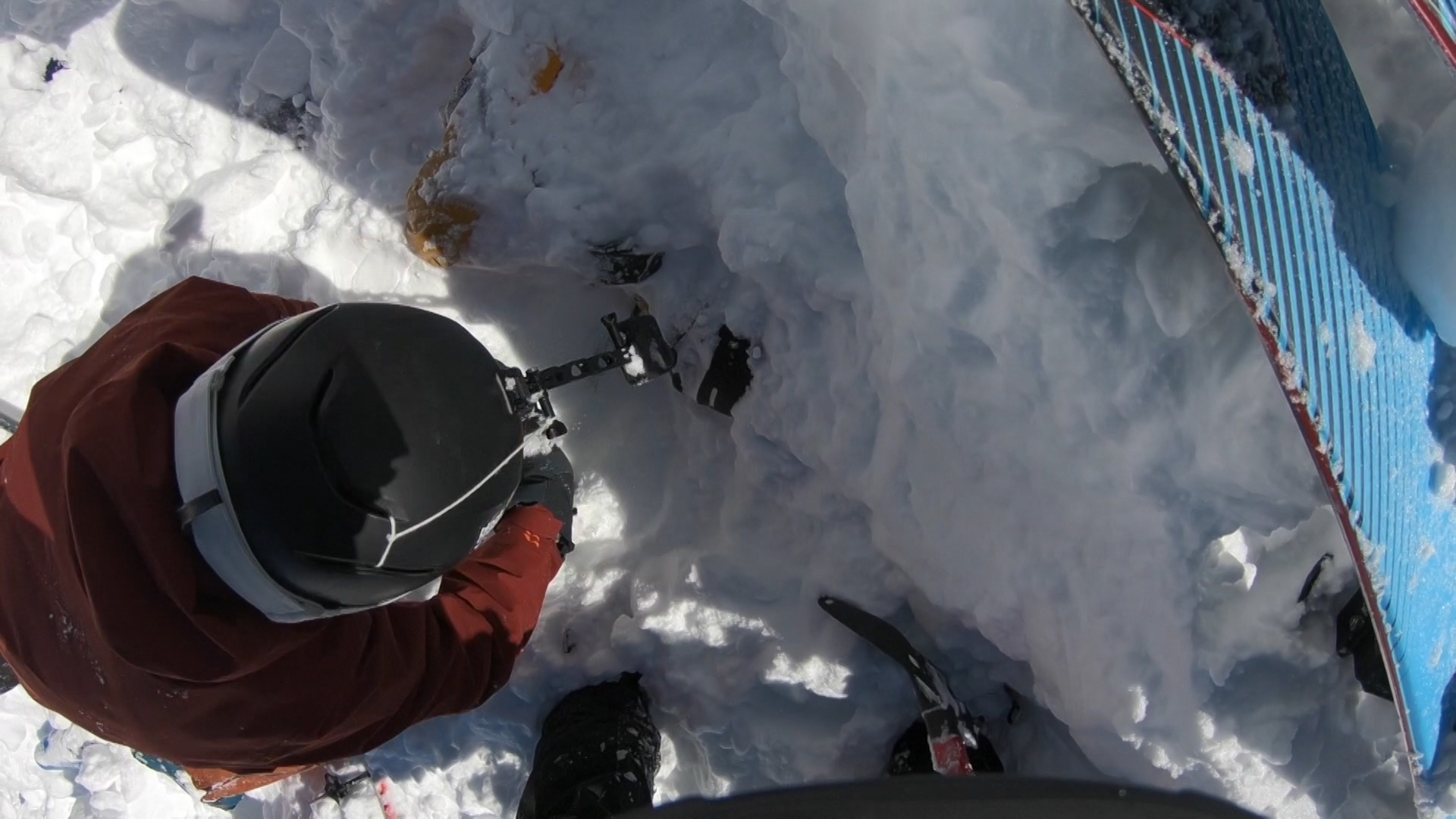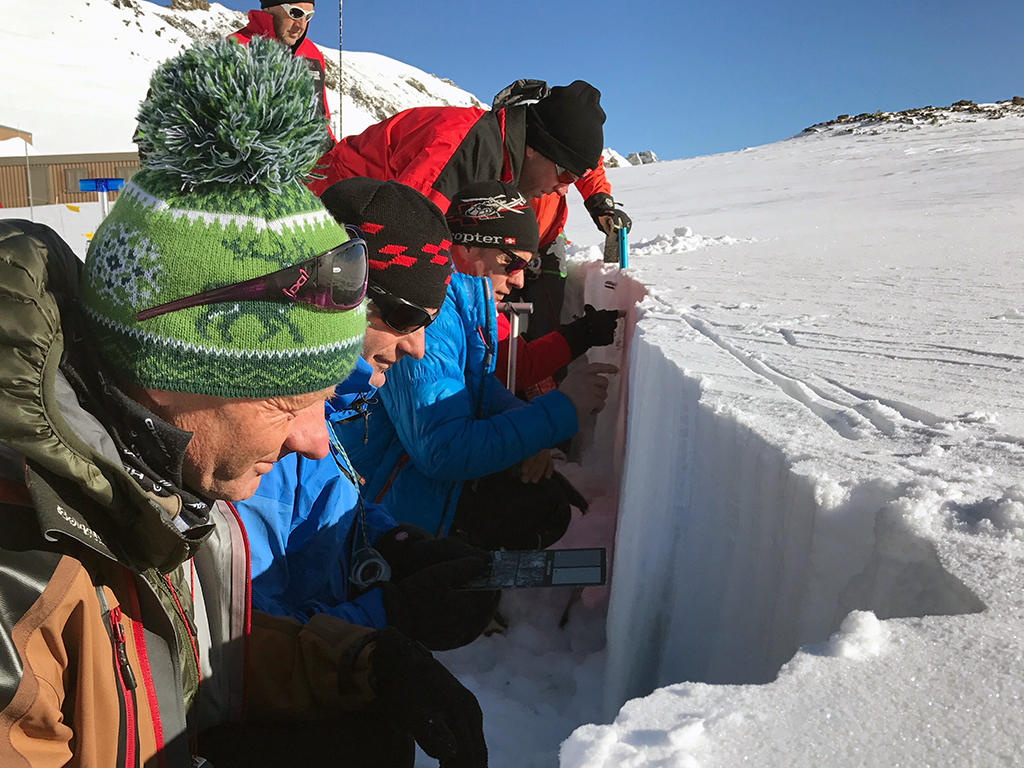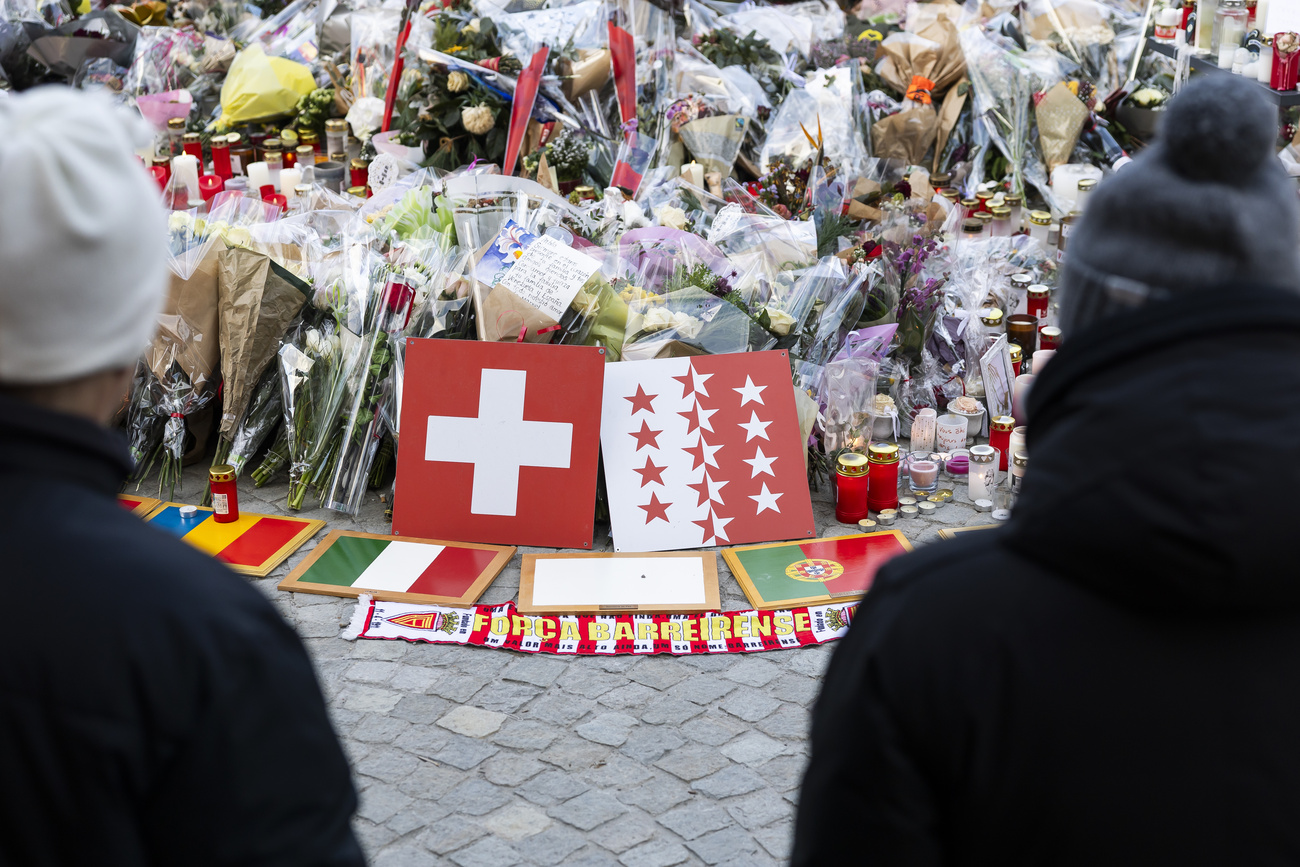
Italian skier dies in avalanche in the Swiss Alps

A 46-year-old Italian skier died on Sunday after being swept away by an avalanche while touring in a mountainous region in southeast Switzerland. At least 11 people have reportedly died in avalanches in the Alps since Friday.
The Italian skier was caught by a 400-metre-long avalanche on February 5 while scaling the northern flank of the 2,968-metre Piz Daint mountain in canton Graubünden. The man was buried and injured in the avalanche despite wearing an avalanche airbag. He died from his injuries in hospital on Sunday, the cantonal police reportedExternal link on Monday.
He was part of a group of eight skiers who were ascending the mountain from the Ofen Pass. On the day of the accident, the avalanche danger in the region was three on a scale of one to five.

More
The avalanche survivors
There have been heavy snow and dozens of avalanches across the Alps over the past week. The Keystone-SDA news agency reported 11 deaths since last Friday.
On Saturday, a 68-year-old Italian ski tourer died in the Reckingen region, in canton Valais, and a second skier was injured after both were swept away by an avalanche.
However, the most serious incidents occurred in Austria. One person was killed and four others were injured in an avalanche in western Austria on Saturday – a day after two other avalanches killed seven skiers. An avalanche in the Bavarian Alps also claimed another fatality.
Heavy snowfall followed by warmer weather has made for unusually dangerous conditions.
The Swiss Institute for Snow and Avalanche Research SLF said on Friday that so far this winter there had been 45 avalanches in Switzerland involving people (annual average is 100). These had mainly occurred in an area stretching east of the Bernese Oberland to the eastern Alps.
Since 1936, about 2,000 people have died in avalanches in Switzerland. On average, 24 people die in avalanches every year. Over the past 20 years, more than 90% of the fatalities occurred off-piste.

More
Why the Swiss are experts at predicting avalanches

In compliance with the JTI standards
More: SWI swissinfo.ch certified by the Journalism Trust Initiative






























You can find an overview of ongoing debates with our journalists here . Please join us!
If you want to start a conversation about a topic raised in this article or want to report factual errors, email us at english@swissinfo.ch.